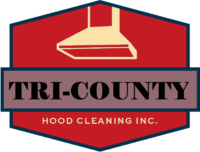Over 20 Years Providing Quality Service Professional License and Insured Company
Location
3208 N.W. 35 STREET
Lauderdale Lakes, FL 33309
Hours of Operation
MON – FRI: 9AM – 5PM
SAT: 9AM – 1PM
SUN : Closed
Contact Us
(954) 627-1722
Tricountyhoodandduct@gmail.com
Tri-County Restaurant Hood Exhaust Fort Lauderdale Fl
 There is no shortage of companies that do duct cleaning, exhaust cleaning, pressure washing, silo cleaning, gutter and ceiling cleaning, and some of the other services we offer. There is a big difference, however, in the experience and outcome of working with Tri-County Hood and Duct Fort Lauderdale. We are committed to doing what’s best for our clients.
There is no shortage of companies that do duct cleaning, exhaust cleaning, pressure washing, silo cleaning, gutter and ceiling cleaning, and some of the other services we offer. There is a big difference, however, in the experience and outcome of working with Tri-County Hood and Duct Fort Lauderdale. We are committed to doing what’s best for our clients.
We are meticulous in our work and passionate about providing remarkable customer service, making your job easier and limiting your downtime. We handle the most challenging, demanding jobs, and simple ones. Tri-County Hood and Duct Fort Lauderdale is on call 24/7 for any emergencies, and equipped with rapid response teams. Someone from our team is always there for you.


Over 20 Years Providing Quality Service – Call us (954) 627-1722
Grease Fire
Approximately one of three restaurant fires is caused by grease. A common scenario of how a kitchen exhaust fire starts is this:
- A flame flares up on the stove.
- The fire contacts the filters above the stove on the kitchen hood. The filters ignite.
- Since the exhaust fan is on, drawing air into the hood, through the filters, and up the duct, the flame on the filters is pulled into the duct.
- If significant grease residue exists on the duct interior, this can act as an accelerant and the fire spreads up the duct, perhaps all the way into the fan. We have seen fire climb up a ten-story duct to the fan on the roof and burn up the fan.
What Type of Kitchen Exhaust Cleaning Services Are There?
There are two primary methods of cleaning kitchen grease exhaust, depending on your needs or requirements of local fire authorities:
- Scraping
- Pressure washing or steam cleaning
Scraping is more economical and is highly effective when done thoroughly. Scraping of restaurant kitchen duct systems complies with the Uniform Fire Code which is the governing fire code of the state of California.
Pressure washing or steam cleaning is more costly and time consuming, since it requires considerable prep work to control waste water and more expensive equipment is involved. However, this method will clean ductwork more thoroughly, particularly hard-to-reach areas found in a small number of exhaust systems. This is why pressure washing may be required by local regulations.
Over 20 Years Providing Quality Service – Call us (954) 627-1722
How Often Should a Kitchen Exhaust Be Cleaned?
Recommended cleaning frequency depends on the type of cooking establishment:
- 30 days: Wood-burning or charcoal-burning stoves, charbroilers, 24-hour restaurants and some hamburger places
- 60 days: Many hamburger restaurants and fast-food locations
- 90 days: Average restaurant, employee cafeteria, hotel or hospital kitchen
- 180 days: Pizza places, convalescent hospitals or small snack bars
- 1 year: Hoods over non-grease-creating appliances, such as steam kettles, dishwashers or soup vats
The Importance of IKECA Membership
Proper kitchen exhaust cleaning is critical to fire prevention. Improper grease exhaust cleaning can pose extreme risks, as described in this article by Catersource®.
Action Duct is certified by the International Kitchen Exhaust Cleaning Association (IKECA). IKECA members are committed to a thorough cleaning of the entire exhaust system, from the hood in the kitchen to the fan on the roof. Members follow the highest cleaning and inspection standards in the industry.
All of our work is guaranteed to pass fire, health, and insurance inspection.
Restaurant Hood Cleaning
Kitchen exhaust cleaning is often referred to as restaurant hood cleaning or commercial hood cleaning. They all refer to the same process, but hood cleaning is a bit of a misnomer. The actual hood is the canopy outside the exhaust system and kitchen exhaust cleaning involves removing grease that has accumulated behind the filters and in the ducts and fans of kitchen exhaust systems.
